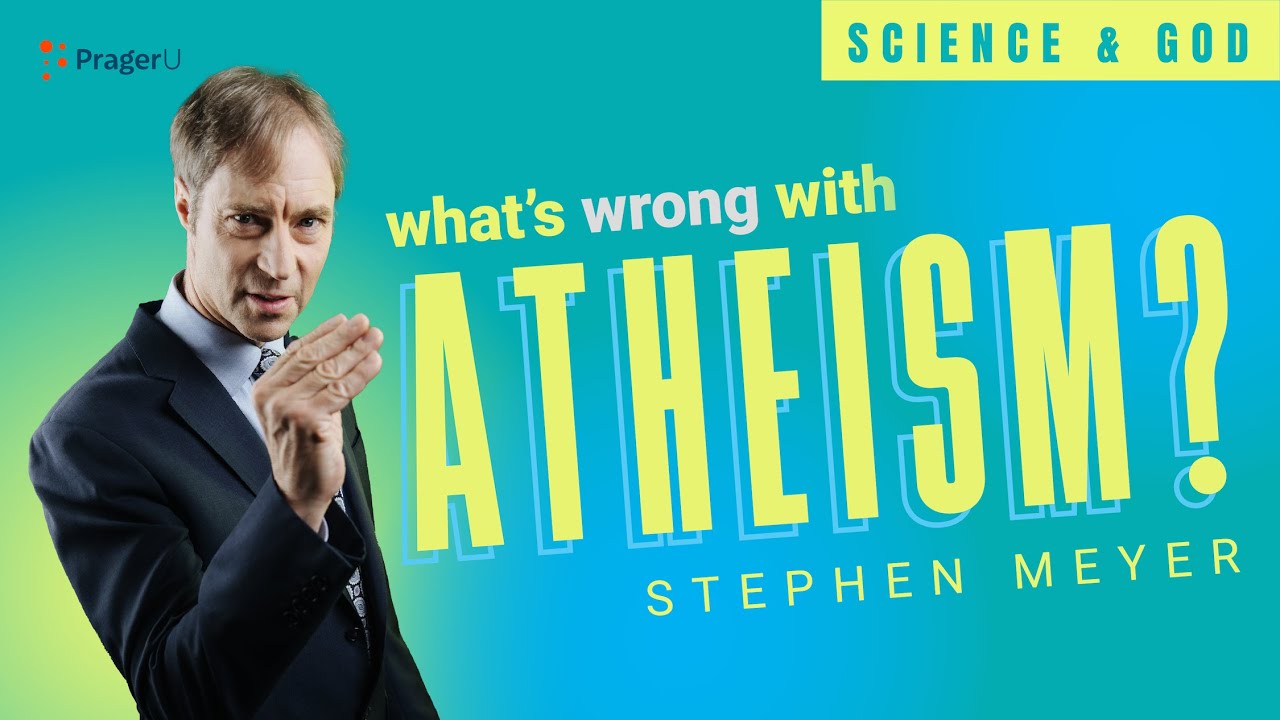What’s Wrong with Atheism?
View at PragerUIn a recent interview, while I was presenting some scientific discoveries that may point to the existence of God, a camera operator, a young woman whom I’ll call Maria, began to weep visibly. Later she told me the reason for her tears.
Like many young people, Maria believed in God when she arrived in college. But while there, she repeatedly encountered professors who insisted that based on “the science” God was a myth.
No more real than Santa Claus.
Maria didn’t feel equipped to challenge her professors. She eventually left college with nagging doubts about her faith and wondering whether life, including her own life, might be nothing more than a cosmic accident.
Many young people share Maria’s doubts.
Indeed powerful voices in the academy tell us that science makes belief in God—and human significance—untenable. For example, as Richard Dawkins, the famed atheist from Oxford, has asserted “[t]he universe we observe has precisely the properties we should expect if there is, at bottom, no design, no purpose…nothing but blind, pitiless indifference.”
But are we the product of such indifference — that is, purely materialistic processes that “did not have us in mind” as another scientific atheist has put it? Does the universe have the properties we should expect if this “all there is is matter” vision of reality is correct?
Perhaps not. Three major scientific discoveries contradict the expectations of scientific atheists and point instead in a distinctly God-friendly direction.
First, the Big Bang. Discoveries in observational astronomy and developments in theoretical physics have revealed that the universe had a beginning. This is contrary to the expectations of scientific materialists, who long portrayed the universe as eternal and self-existent and, therefore, in no need of an external creator.
This evidence for a beginning has instead confirmed the expectations of theists. Nobel laureate Arno Penzias helped make a key discovery establishing a cosmic beginning. He later observed, “The best data we have are exactly what I would have predicted, had I nothing to go on but the first five books of Moses. . .and the Bible as a whole.”
And he’s not alone. Cosmological evidence has led other prominent scientists — including former MIT physicist Gerald Schroeder and the great Caltech astronomer Allan Sandage — to affirm a transcendent creator beyond space and time as the best explanation for the origin of our finite universe.
Second, fine-tuning. We live in what Australian physicist Luke Barnes calls an extremely “Fortunate Universe,” where fundamental laws and physical parameters have somehow been “fine-tuned” with just the right strengths and values to make life possible. The incredible odds against this happening by chance has led even agnostic and atheistic physicists to marvel. As British physicist Paul Davies has exclaimed, “the impression of design is overwhelming.” Atheist physicist George Greenstein expresses similar cognitive dissonance: “The thought insistently arises that some supernatural…Agency, must be involved…”
Third, the complexity of life. Molecular biology has revealed the presence in living cells of an exquisite world of informational nano-technology — digital code in DNA and RNA; tiny, intricately-constructed molecular machines, a complex, information storage, transmission and processing system that resembles, but vastly exceeds, our most advanced digital high-technology.
Not what anyone would expect to see as the result of blind materialistic processes.
Dawkins himself may have conceded as much when he recently confessed to being knocked “sideways with wonder at the miniaturized intricacy of the data-processing machinery in the living cell.”
So what should we make of all this?
For their part, scientific atheists have constructed ever more convoluted and fanciful theories. They posit alien designers to account for the code of life; multiple parallel universes to try to explain fine tuning; and they’ve developed elaborate mathematical equations in an attempt to use physics to show how the universe could have begun from nothing physical.
But what if the scientific atheists are just wrong? What if the universe has precisely the properties we should expect if there is an intelligent and purposeful Creator behind it all?
In my book Return of the God Hypothesis, I argue that the universe has precisely such properties.
And that raises a hopeful possibility— that we are not the product of “blind pitiless indifference,” but instead that we were made on purpose — that we were intended.
British historian Paul Johnson has argued that, “the existence or non-existence of God is the most important question we humans” can ever ask. Given the scientific evidence we now have, it might be time to consider—or reconsider this question.
